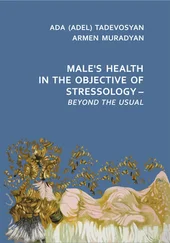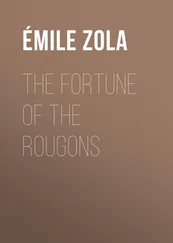He was brought to the rostrum on a stretcher made out of pine bows.
“I think you don’t even think you have a fracture, but it’s better for us not to tire you out,” the young doctor said, taking seriously his role as the head of the first-aid team.
Paul had initially lost consciousness, but then he had opened his eyes, unaware of what was going on. Above him were several unfamiliar faces, including Nora’s: the severe, sad Nora at whom he would have liked to smile.
He had received a blow in the right eye, his lower lip was bleeding, his forehead and cheeks were raw with scratches.
“That’s not the important thing,” the doctor said. “If there’s no fracture, nor an internal hemorrhage, we’re home-free.”
Nothing was hurting. He just felt that he couldn’t get up. Nora was rubbing him with her handkerchief.
“It’s your turn to get me up out of the snow,” he said. “Now you don’t owe me anything: an accident for an accident.”
She bent over him even farther and whispered in his ear, so that no one would hear: “Why did you do that, Paul? Why?”
“I don’t know, Nora. I don’t remember.”
There was something radiant in his gaze, an expression of great calm.
“I’ve forgotten everything, absolutely everything. And here in the snow beneath your eyes, Nora, I’m a man without memories, a free man — you hear me? A free man…”
OLD GRODECK ARRIVED AT THE CABIN THE MORNING AFTER Christmas. Nobody expected him, but even before his arrival, Faffner showed signs of uneasiness. He roamed about snarling and rooting around in the snow with his snout as though searching for an invisible trail of blood.
“That dog is ill,” Nora said, trying to quiet him down; but no one could get close to him.
Faffner threw himself on Old Grodeck as soon as he saw him. Until they came out of the cabin to help him, the man was sprawled in the snow howling in panic. He got up white with fear, his jacket torn across the right shoulder where the dog had sunk in his fangs. By a miracle, the wound wasn’t deep. It was his good fortune to be very heavily dressed and wearing a fur coat which it was difficult for the dog’s fangs to penetrate, but through which they had reached the skin, leaving a bloody ring like a red brand.
Faffner no longer recognized Hagen, Gunther or Paul. He writhed in their hands with a wild desperation. All three of them had to hold him down, wrestling with him, until Old Grodeck, led away by Nora, finally succeeded in entering the cabin.
They had no sooner released him than Faffner pounced at the door and the windows with a frantic howl of impotence.
“We can’t leave him like that,” Hagen said. “We’d better chain him up.”
They all entered the house, where for a moment they remained silent, listening with a clutch in their heart to the howls of the tortured being who seemed to be asking for their help.
Old Grodeck wasn’t actually old. He didn’t look more than fifty, and he wore those fifty years very lightly on his still-vigorous shoulders.
He recovered quickly from the fright he had received. He shook the snow off his clothes without looking embarrassed at what had happened. Faffner’s howls, which continued to sound outside as the dog strained against the chain, didn’t seem to bother him.
“I’ve always said that animal’s disturbed.”
His unusual entrance into the cabin made introductions difficult. He hadn’t said hello on arriving, nor had he offered anyone his hand — and now it was too late for these formalities, since they were all looking as though they were unaccustomed to them. He was dressed in city clothes and wore mourning, presumably for his wife. The black ribbon on his left arm had come loose during his fall, and now he adjusted it again with great care. It was a very proper form of mourning, that of a scrupulous man who knew his duties and respected them. A certain chilly dignity persisted in his bearing even now, after being mauled in his fight with the dog.
That morning Gunther was wearing his red sweater and a pair of light grey flannel slacks. Next to him, Old Grodeck’s black clothes were like a silent reprimand, as though he alone cherished the dead woman’s memory. He walked between the people and objects in the room with a cold gaze that asked no questions but disapproved of everything. He seemed to be waiting to be alone with his son in order to tell him what had brought him to the cabin, but Hagen, who usually found work he had to do outside, remained still this time, with a visible resolution not to move from the spot.
“Please stay here,” Gunther whispered to Nora and Paul, who were getting ready to leave.
Beneath his customary ironic smile was a challenging expression directed at the unexpected guest in black, but also a fear of remaining alone with him.
The silence became even more oppressive during lunch. Only Faffner’s intermittent barking outside was audible. Old Grodeck ate sparingly, yet seriously and with a kind of meticulous attention. Once in a long while he uttered a word or two about people who Gunther must know. The name Aunt Augusta recurred frequently in his conversation, spoken with reverence, as though referring to a higher authority. This Aunt Augusta must occupy a significant place in the Grodeck hierarchy. Yet Gunther made no reply of any sort, and Old Grodeck did not seem to expect one.
Hagen had not sat down at the table. His powerful silence defended from afar the more nervous, uncertain silence of the boy. He remained riveted to his spot next to the door without once allowing his gaze to stray from what was happening at the table. The old man seemed to have no problem in putting up with this leaden, strained silence. Leaning his immense shoulders over the table, he could have borne far heavier weights without feeling them. His mourning tie and black suit gave him a solemn, pensive air. As the end of the meal approached, he still hadn’t spoken a word. When he finished eating, he suddenly addressed Gunther: “I’ve come to ask if you want to return home.”
The boy didn’t reply at first. Such a direct question hadn’t been expected; nothing had prepared him for it. Then he replied curtly with an unflinching expression: “No.”
Old Grodeck accepted the reply, looking him in the face without a tremor. “I knew it. It was my duty to ask you, but I knew it.”
“In that case,” Gunther said, “you shouldn’t have tired yourself out coming all the way up here. I’m sorry you had to make such a long trip.”
“Anybody could make that trip. Whether you stay here or whether you leave, we have a few things to talk about. It might be better if the two of us talked about them alone.”
“I don’t have any secrets,” Gunther said, bewildered by the thought that he might be left alone and shooting a pleading glance in the direction of Nora, Paul and Hagen.
“They’re not secrets, they’re business issues… I want to talk to you about the Bihor forest.”
Until now he had been speaking in Romanian, but in that moment, before finishing his sentence, he started to speak German, as though in a kind of instinctive self-defence against the strangers in front of him. His speech took on a nervous haste that hadn’t been evident before. The calm he had shown until now was due in part to the fact that he had to choose his words with care when speaking Romanian.
They were talking about a railway line for logging that the Grodeck enterprises were building in their forest in Bihor. As unforeseen developments had occurred, which would prolong the project by another year, he sought from Gunther an agreement in principle that on reaching the age of majority the boy would not block the scheme’s unfolding evolution. The issue was important, and Old Grodeck presented it in detail, with figures, technical explanations, diagrams and blueprints, which he had brought with him and now spread over the table.
Читать дальше












